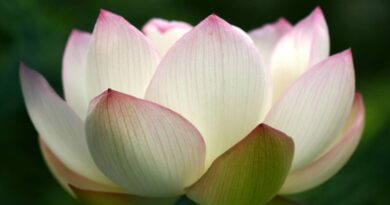THE QUESTIONS
The Questions
§ 1. “There are some cases in which a person overcome with pain, his mind exhausted, grieves, mourns, laments, beats his breast, & becomes bewildered. Or one overcome with pain, his mind exhausted, comes to search outside, ‘Who knows a way or two to stop this pain?’ I tell you, monks, that stress results either in bewilderment or in search.” — AN 6:63
§ 2. Both formerly & now, it is only stress that I describe, and the cessation of stress.” — SN 22:86
§ 3. Ven. Sāriputta said: “Friends, in foreign lands there are wise nobles & brahmans, householders & contemplatives—for the people there are wise & discriminating—who will question a monk: ‘What is your teacher’s doctrine? What does he teach?’
“Thus asked, you should answer, ‘Our teacher teaches the subduing of passion & desire.’
“Having thus been answered, there may be wise nobles & brahmans, householders & contemplatives… who will question you further, ‘And your teacher teaches the subduing of passion & desire for what?’
“Thus asked, you should answer, ‘Our teacher teaches the subduing of passion & desire for form… for feeling… for perception… for fabrications. Our teacher teaches the subduing of passion & desire for consciousness.’
“Having thus been answered, there may be wise nobles & brahmans, householders & contemplatives… who will question you further, ‘And seeing what danger does your teacher teach the subduing of passion & desire for form… for feeling… for perception… for fabrications. Seeing what danger does your teacher teach the subduing of passion & desire for consciousness?’
“Thus asked, you should answer, ‘When one is not free from passion, desire, love, thirst, fever, & craving for form, then from any change & alteration in that form, there arises sorrow, lamentation, pain, grief, & despair. When one is not free from passion… for feeling… for perception… for fabrications… When one is not free from passion, desire, love, thirst, fever, & craving for consciousness, then from any change & alteration in that consciousness, there arise sorrow, lamentation, pain, grief, & despair. Seeing this danger, our teacher teaches the subduing of passion & desire for form… for feeling… for perception… for fabrications. Seeing this danger our teacher teaches the subduing of passion & desire for consciousness.’
“Having thus been answered, there may be wise nobles & brahmans, householders & contemplatives… who will question you further, ‘And seeing what benefit does your teacher teach the subduing of passion & desire for form… for feeling… for perception… for fabrications. Seeing what benefit does your teacher teach the subduing of passion & desire for consciousness?’
“Thus asked, you should answer, ‘When one is free from passion, desire, love, thirst, fever, & craving for form, then with any change & alteration in that form, there does not arise any sorrow, lamentation, pain, grief, or despair. When one is free from passion… for feeling… for perception… for fabrications… When one is free from passion, desire, love, thirst, fever, & craving for consciousness, then with any change & alteration in that consciousness, there does not arise any sorrow, lamentation, pain, grief, or despair. Seeing this benefit, our teacher teaches the subduing of passion & desire for form… for feeling… for perception… for fabrications. Seeing this benefit our teacher teaches the subduing of passion & desire for consciousness.’” — SN 22:2
§ 4. “And what is the middle way realized by the Tathāgata that—producing vision, producing knowledge—leads to calm, to direct knowledge, to self-awakening, to unbinding? Precisely this noble eightfold path: right view, right resolve, right speech, right action, right livelihood, right effort, right mindfulness, right concentration.” — SN 56:11



